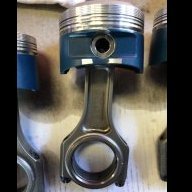The Great Dyno E-Doodle debate
Announcements
-
Similar Content
-
Latest Posts
-
Everything looks worse with tri-spokes.
-
Hard to tell from the vid but it's possibly the cam belt.
-
Nah that's this thread....otherwise why are we talking about the most melted looking car since the AU falcon?
-
I believe the abominations thread is elsewhere.
-



Recommended Posts